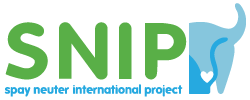About SNIP Foundation
Most developing nations don’t have shelter facilities or governmental programs to humanely control population of companion animals.
This work falls directly on animal welfare organizations and community leaders who strive to find cost effective solutions.
This is where SNIP jumps into action providing financial aid to offer mass, low-cost spay & neuter clinics and educational programs. SNIP Foundation is a 501(c)(3) non-profit based in the U.S. with its main office of operations in San Jose, Costa Rica.
The need is urgent: there are thousands of communities without access to veterinary care or low cost spay & neuter programs. – –
A WORD BY THE FOUNDERS
We founded SNIP in 2012 in order to help make a substantial difference in the way companion animals are perceived and treated in the developing world. Our aim was to assist local animal advocates in making terms like spay & neuter and responsible pet ownership part of the family lexicon. Today we continue in our mission of supporting local rescue groups with organizing regularly held, low-cost spay & neuter clinics and outreach educational programs by requesting international grants and soliciting private donations from animal lovers who reside in more developed nations and, thus, have the financial means to help communities in need. That is the main reason behind Snip being registered as a non-profit corporation with a 501(c)(3) tax exemption in the United States of America.
We are a small group of dedicated volunteers who believe that in order to end the tragedy of homeless companion animals, there needs to be a massive investment into promoting the cultural change necessary to make a difference.
OUR MISSION
To reduce overpopulation of dogs and cats in developing nations by promoting spay & neuter as the only humane, sustainable method of pet population control.
REASON WHY
Developing nations simply do not have the financial resources to humanely control pet population and also rescue/house abandoned pets. This work falls directly on animal welfare organizations and community leaders who strive to find cost effective solutions to manage companion animal population. This is where SNIP comes in providing financial aid to offer mass, low-cost spay & neuter clinics and educational programs.
OUR STRATEGY
SNIP offers a viable, sustainable, humane alternative to the traditional rescue approach favored by many advocacy groups. We propose a protocol that refutes the violent methods of pet population control so common in developing nations and that focuses instead on preventive methods. The truth is that the issue of pet overpopulation originates in the community and that, unless the community is involved in the solution, the tragedy of homeless pets will never be ended. We favor an approach that puts spay & neuter at the foundation of our animal advocacy programs, turning high kill communities into no kill ones.
Registered animal advocacy groups from Central America contact us for help. They sign an agreement with detailed guidelines about the use of the funds and quality control of the surgical procedures. Once they are approved by SNIP they are encouraged to submit proposals for specific projects that they deem urgent. If SNIP approves the project, a request for international funding is initiated.
WHERE WE WORK
At present we are limiting our efforts to Central America with special emphasis on Costa Rica and Guatemala.

Our Approach to Animal Rescue
SNIP offers a viable, sustainable, humane alternative to the traditional rescue approach favored by many advocacy groups. We propose a protocol that refutes the violent methods of pet population control so common in developing nations and that focuses, instead, on preventive methods. The truth is that the issue of pet overpopulation originates in the community and that, unless the community is involved in the solution, the tragedy of homeless pets will never be ended. We favor an approach that puts spay & neuter at the foundation of our animal advocacy programs, turning high kill communities into No Kill ones.
OUR PROGRAMS
Financial Aid for Spay & Neuter
Although we suggest to community leaders and veterinarians to charge a minimal fee to animal owners, the harsh reality is that in many communities there are thousands of people who struggle to feed their children, therefore asking them to pay for spay & neuter services is unrealistic. These are the communities we offer a helping hand to, sponsoring spay & neuter so that no animal is left behind.

Education
When it comes to responsible ownership, the whole family should be involved and learn how to properly care for their own pet in a way that also positively impacts the community. We believe that community welfare begins with animal welfare and that empowering local people is the only sustainable solution to the tragedy of homeless companion animals, one community and one low-cost clinic at a time!

OUR Staff and Board of Directors
We’ve recruited some of the best experts when it comes to humane methods of pet population control. We are committed to improving animal welfare in developing nations.
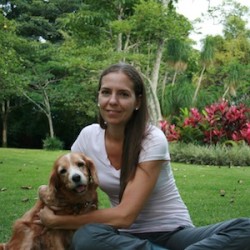
Carla Ferraro – Founder & Executive Director
Carla worked as Program Director of the McKee Project for 7 years overseeing Costa Rica and Central/South America, focusing on the 3 main divisions of the foundation: Spay & Neuter Surgery Training, Community Outreach and Cat Cafe.
Carla empowered hundreds of community groups in Guatemala, Nicaragua, Belize, Panama, Costa Rica & Peru: most of these groups are still active today offering low-cost, mass spay & neuter clinics in poor neighborhoods.
She lives in Costa Rica with her 6 dogs and 2 cats (all rescued). She often fosters animals in need.
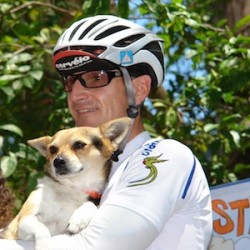
Davide Ulivieri – Founder and Fundraising Volunteer
Davide worked closely with Carla at the McKee Project before SNIP was born. He is a long time animal lover and an advocate for low-cost, mass spay and neuter campaigns. A former military officer and fitness coach, Davide is also the founder of Cycle 4 Strays, long distance cycling events to raise the funds necessary to organize spay & neuter clinics in developing nations.
He resides in Parker, Colorado, where he co-owns Prairie Home Pet Care.
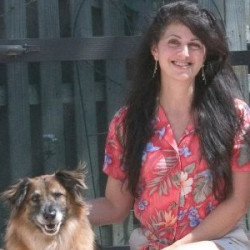
LAURA HOFFMANN – PRESIDENT
Laura runs a successful real estate firm in Tampa Bay, Florida, and she has a long animal rescue history. An avid cyclist and athlete, Laura is a member of the Cycle 4 Strays team and pedaled with Davide for a portion of the 2010 fundraising ride. Laura is also very active in her community supporting local shelters and rescue groups with fostering, participating in adoption events and organizing fundraising drives.
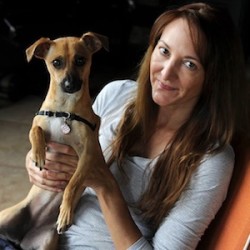
Teresa Bodem – Treasurer
Teresa Bodem is Senior Manager of Corporate and Foundation Relations at Best Friends Animal Society. In this role, she oversees four distinct teams: corporate relations and event sponsorships, foundation relations, workplace campaigns, and in-kind relations.
Starting at the grassroots level 20 years ago; Teresa has expanded her nonprofit experience to include international and national work for organizations such as American Diabetes Association, Make-A-Wish Foundation of America, Make-A-Wish Foundation International, and Family Health International. Teresa earned double master’s degrees in business from the University of Toronto, Canada and the University of St. Gallen, Switzerland. Teresa lives in Kanab, Utah with her two rescue dogs Monkey and Flower.
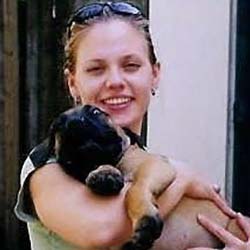
Robin Jagoda – Secretary
A former fitness coach and cardiac/pulmonary rehab specialist, Robin has a long history of volunteering for rescue organizations and has rehabilitated many sick and injured animals. She lives on a small acreage in Colorado which houses several rescued dogs and cats.
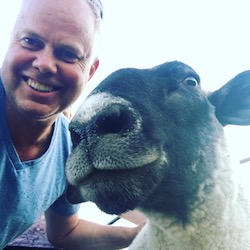
Dana Wilson – Vice President
A new member of the team, Dana is a lover of all animals, has been a longtime volunteer in animal welfare, and an advocate for pet adoption and spay and neuter. He has traveled to many parts of the world where animal neglect is rampant, but was impressed by the noticeable impact of the animal advocates in Costa Rica during a visit in 2011. Dana is based in Salt Lake City, Utah, is the Marketing Director for the University of Utah, S.J. Quinney College of Law and operates his own small marketing and communications consulting business.
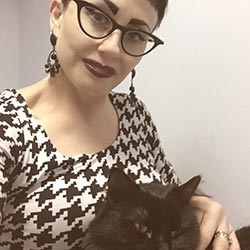
Jaimi Haig – Vice President
Jaimi met Davide, Carla and Teresa all through Best Friends Animal Society, where she works in Salt Lake City in the marketing department. Before moving to the non-profit sector, she worked in management positions at several ad agencies and publishing companies. She’s now been with Best Friends full time for over seven years, and her passion for helping animals started very early in life as a young girl.
